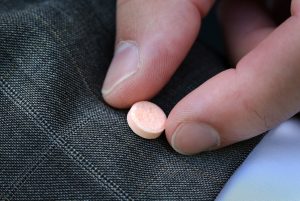 Before the spreading coronavirus became a pandemic, Emma went to an Alcoholics Anonymous meeting every week in the Boston area and to another support group at her methadone clinic. She says she felt safe, secure and never judged.
Before the spreading coronavirus became a pandemic, Emma went to an Alcoholics Anonymous meeting every week in the Boston area and to another support group at her methadone clinic. She says she felt safe, secure and never judged.
“No one is thinking, ‘Oh my God, she did that?’ ” says Emma, “’cause they’ve been there.”
Now, with AA and other groups moving online, and the methadone clinic shifting to phone meetings and appointments, Emma is feeling more isolated. She’s still using heroin occasionally, which is why we’re not including her last name. Emma says the coronavirus may make it harder to stay in recovery.
“Maybe I’m old fashioned,” says Emma. “but the whole point of going to a meeting is to be around people and be social and feel connected, and I’d be totally missing that if I did it online.”
While staying home may be the safer way to avoid getting and spreading COVID-19, addiction specialists acknowledge Emma’s concern: Doing so may increase feelings of depression and anxiety among people in recovery — and those are underlying causes of drug and alcohol use and addiction.
“We consider addiction a disease of isolation,” says Dr. Marvin Seppala, chief medical officer at the Hazelden Betty Ford Foundation. “Now we’re isolating all these people and expecting them to pick up the phone, get on line, that sort of thing — and it may not work out as well.”
Emma has another frustration: If the methadone clinic isn’t allowing gatherings, why is she still required to show up daily and wait in line for her dose of the pink liquid medication?
The answer is in tangled rules regarding methadone dispensing. The federal government has loosened them during the pandemic — so that patients don’t all have to make a daily trip to the methadone clinic, even if they are sick. But patients say clinics have been slow to adopt the new rules.
